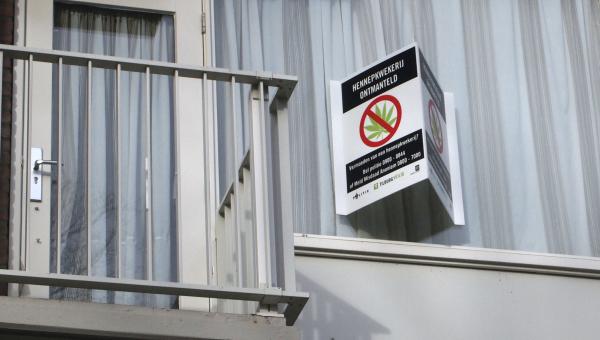Intervening in Criminal Families
In subversive and organized crime, relationships of trust are important. It is for good reason that family members are often relied on. Over time, families and larger family clans have emerged in which delinquent behavior passes from one generation to the next. In addition, there are multi-problem families that mainly cause nuisance, exhibit aggressive behavior, and live off minor crime and weed cultivation. In recent years, Tilburg University, in cooperation with external partners, has carried out various projects that have put the phenomenon of “criminal families” on the map.
A family as a criminal organization. How do you prevent organized crime from being handed down from father to son?
Intervening in Criminal Families
The most recent study Intervening in Criminal Families examines the experiences of a number of Dutch municipalities where integral projects aimed at criminal families are ongoing. It is clear that, in addition to repression, a preventative approach is required while resilience is also an important factor. Parties in the field of investigation are increasingly finding each other, and healthcare organizations are also working together more and more. However, it is proving difficult for municipalities to successfully combine both approaches. Police, schools, doctors, and youth care are often not allowed to exchange information with each other for reasons of privacy.
In addition, it is clear that criminal families often have a negative impact on the neighborhoods in which they live. They form the wrong role model for vulnerable young people by showing them material prosperity, or they try to cultivate goodwill by playing the benefactor. At the same time, “walls of silence” are enforced by intimidation. In addition to prevention and repression, a neighborhood-oriented approach is therefore needed to increase social resilience.
Finally, employees of institutions dealing with these families also regularly face threats when interventions actually threaten to disrupt the families' criminal earning models.
In the coming years, Tilburg University, together with its partners, will continue to conduct research into themes relating to criminal families. Examples are specific issues regarding families with a migration and Roma background; the influence of these families and the resulting “neighborhood crime lords” (wijkkoningen) in the neighborhoods where they live; and increasing their professional resilience.
In this research project we collaborate with:
- Police and Science
- Centre for Crime Prevention and Public Safety
- EMMA Experts in Media and Society
Results
All these results are in Dutch.
- Boek: 'Interveniëren in criminele families'
- Handreiking 'Interveniëren in criminele families'
- Nieuwsuur: 'Aanpak van criminele families'
- EMMA: Criminele families in de media
- Artikel NRC: ' Gemeenten zouden criminele families met harde en zachte hand moeten aanpakken'
- Instromen in ondermijnende misdaad. Kennisdocument vroegsignalering van (jonge) instromers in criminele netwerken.
- Zware criminelen in Tilburg-Noord. Kennisdocument Jeugd, drugs en criminele families (verschijnt binnenkort).
News, some items are only available in Dutch
Contact us
Within our research project, we explicitly focus on action perspectives for institutions that work with these families. We can provide targeted support to these institutions, for example through our methodology of Organized Crime Field Labs.
For more information about this project, please contact the coordinator
Coordinator
Also interesting
-

Repression and prevention of subversive crime
Subversive crime is high on society's agenda. Tilburg University contributes from various disciplines to a scientific solution to this problem.
More information -

Undermining by Criminal Benefactors
In 2018, Tilburg University put the theme of “criminal benefactors” on the map. It was known that criminals are also involved in sponsoring socially useful activities, charities, events, and are active in healthcare. However, no systematic research had ever been conducted into how big this problem is and how it manifests itself.
More information -

IMOBEX
EU research project 'Improving enforcement at the intersection of mobile banditry and exploitation (IMOBEX)'. IMOBEX will develop novel investigation methods; address training needs and enhance cross-border and multiagency cooperation.
More information

